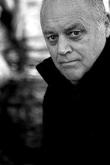Robert Duncan Drewe grew up in Perth. He worked as a journalist for the West Australian in 1961, was columnist and literary editor at the Australian from 1970-1974, and bureau chief at the Age from 1965-1970. He was a special correspondent in 1976-1976, and from 1980-1982, and a foreign correspondent from 1973-1980 for the Bulletin. He has won a number of awards for his journalism work, including two Walkley Awards for his work at the Bulletin.
In the 1970s, he turned to fiction, beginning with The Savage Crows. Since then, he has written another six novels (as of 2017, when Whipbird was released), and numerous short stories, plays, biographies and autobiographies, and columns.
Drewe was an Australian Creative Fellow from 1992-1996, and Writer-in-Residence at the University of Western Australia in 1976, and at La Trobe University in 1986. He holds an honorary doctorate in literature from The University of Queensland and an honorary doctorate of letters from the University of Western Australia.
Drewe writes novels, short stories, drama and critical material. His tone has been described as bleak, and his style frequently ventures into black comedy. His thematic interests include the clash between Aboriginal and white culture; the different roles available to individuals in Australian society; cultural mythology and the moral and social responsibilities of the media.
His work has been adapted for film, radio, theatre and television and has won national and international awards, including the Commonwealth Writers Prize and Premier's Awards for literature in NSW, Victoria, and Western Australia (including all three for The Drowner).
 4684672394677952299.png
4684672394677952299.png